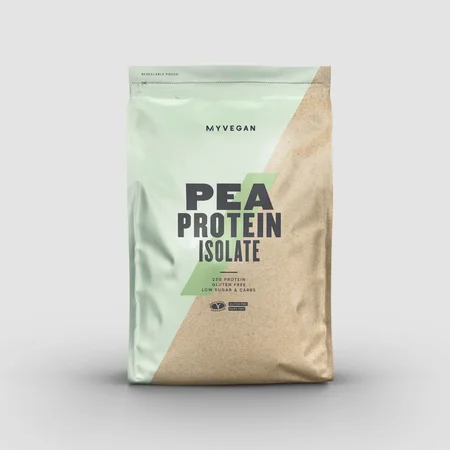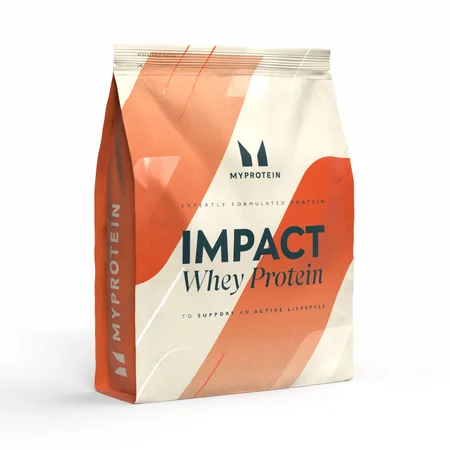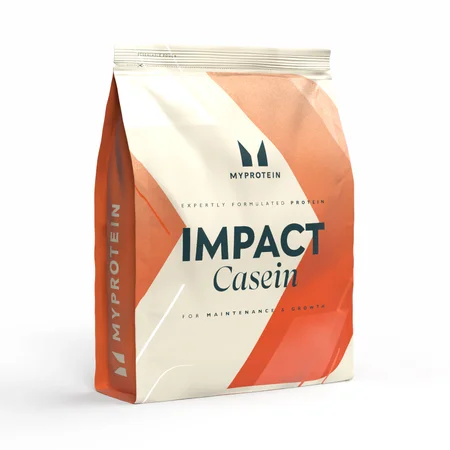Benefits Of Protein Shakes Before Bed

- Benefits of protein before bed.
- Which protein to have before bed.
- Recommended bedtime protein shakes.
- Bedtime protein recipe.
- FAQs

Benefits of Protein Before Bed
1. Weight Loss
Protein is the main nutrient that stimulates the growth of new muscle tissue and also helps to protect your hard-earned muscle mass during weight loss.(10) However, the power of protein doesn’t stop there, as research shows that protein intake before you hit the hay can boost metabolism (the process of converting food into energy) and help keep hunger pangs at bay.
Protein intake also keeps us feeling full and may help to reduce those late-night, high calorie cravings that can be damaging to your weight loss success.(2)
2. Muscle Growth
While many people train in the evening and consume protein in the post-workout period, how many of us consider protein shakes before bed? This is especially important given that the stimulation of muscle growth is typically low when you sleep and so you may be at risk of muscle protein breakdown throughout the night. (3, 15)
Luckily, researchers have shown that your gut is still able to function normally throughout the night whilst you sleep, which means you can still properly digest and absorb any protein consumed before bed.(5)
This gives you a clear opportunity to stimulate muscle growth as you sleep by slurping down protein shakes before bed. So how much do you need? Researchers have shown that 40g casein protein before bed stimulates muscle protein synthesis (the process of building muscle mass) by around 20%.(12)
3. Sleep
Sleep is generally recognised as an important recovery tool and a constant lack of sleep may result in changes to performance, immunity and protein absorption.(6) Although much more research in this area is required, we currently know that consuming a high-protein diet may improve overall sleep quality.(7)
Furthermore, its intake prior to sleep may increase the availability of the amino acid L-tryptophan. When consumed with carbohydrates, tryptophan uptake into the brain is increased and may improve the time taken to fall asleep as well as overall sleep quality.(6)

Which protein to consume before bed
The majority of available research to date supports the use of casein protein, although the differences between casein, whey, and soy are very small. The theory behind the use of casein protein is that it provides a more sustained release of amino acids and so maintains amino acid availability throughout the night.(4)
Despite this, more research is needed to provide clear guidelines on the best form of protein to take before bed. For now, we should keep in mind that the majority of studies listed above commonly use doses between 40-50g protein. It may be that the dosage is a more important consideration than the type of protein being consumed.
Myprotein’s recommended bedtime protein shakes
Overnight Recovery Blend
Overnight Recovery Blend is a slow-release protein blend, which contains 5 different proteins; whey, micellar casein, milk isolate and egg white protein. There’s evidence to suggest combining whey and casein can have the best effect on muscle protein synthesis as the whey will help to spike levels up quickly whilst the casein will help prolong it. 16
This makes protein blends in general a good option before bed. A further advantage to overnight recovery blend is the added zinc and magnesium which have both been shown to a potential to enhance recovery from exercise and improve sleep quality. 17,18
Slow-Release Casein
Casein is a protein which is digested slowly meaning the amino acids enter the blood stream in a slow, sustained way. This results in muscle protein synthesis rates being elevated for a longer period of time preventing muscle protein breakdown rates exceeding synthesis rates. 4
This slow digestion makes it a good choice before bed as it may help to prevent a net loss of muscle during an overnight fast. 15 Another key benefit of slow-release casein is that it’s also suitable for vegetarians.
Slow-Release Casein Elite
If you’re a professional athlete or competing in sports at any level, slow-release casein elite is the pre-bed shake option for you as it has been batch tested for banned substances by Informed-Sport.
Whichever supplements you choose, if you are competing professionally it’s crucial that the supplements you take are test properly and looking out for options tested by Informed-Sport is the way to do this.
Milk Protein Powder
Milk is nature’s own protein blend with a mix of whey and casein. The milk protein powder used is ultra-filtered skimmed milk which means it contains only 106 calories.
This makes it a great pre-bed option for those following an energy restricted as it may help you preserve muscle whilst losing weight.
Total Protein Blend
Total protein blend contains a mix of seven different protein powders. This means the powder has an excellent amino acid profile allowing you build and preserve muscle. The combination of proteins makes it great shake regardless of the time of day but the mixed digestion rates mean it is a good option before bed.
Vegan Protein Blend
The Vegan Protein Blend is made up of Pea Protein Isolate and Fava Bean Isolate. Pea protein has a similar digestibility as casein making it a good alternative pre-bed option for those following a vegan diet. 19
Bedtime Protein Recipe Suggestion
Protein plays a role in stimulating the synthesis of new muscle and next-day metabolism, and tryptophan in the production of improved sleep quality and melatonin (the hormone that regulates the sleep–wake cycle). It therefore seems logical that our pre-sleep shake should contain both protein and tryptophan.(13) Dairy products such as milk and yoghurt provide a mix of both whey and casein, whilst also containing tryptophan, which can be found in pumpkin and sunflower seeds.
This pre-sleep shake recipe combines all of the key compounds to cover all bases.
150g fat-free strained Greek yoghurt - 20g protein powder
- 2 tbsp. pumpkin seeds
- 1 cup mixed berries
Milk or water for desired thickness
Take home message
Having protein shakes before bed provides a key opportunity to stimulate muscle growth, influence daily energy metabolism, and improve overall sleep quality. Furthermore, when consumed regularly, pre-sleep protein promotes gains in both muscle mass and strength. Whilst the optimal type of protein required before bed remains unclear, a dose of between 40-50g may be necessary to achieve the benefits outlined in this article.
FAQs
Should I have a protein shake before bed?
Taking a protein shake before bed has benefits including stimulating muscle growth and improving sleep quality.
What type of protein should I take before bed?
Most research supports that casein is the best protein to take at night, due to its more sustained release of amino acids, maintaining protein bioavailability throughout the night.
How can protein before bed help weight loss?
Taking protein before bed has been found to increase your metabolism the following day. Protein also takes more energy to breakdown, compared to carbohydrates.
How can protein before bed help muscle growth?
Taking protein before bed takes your muscles from a negative protein balance throughout the night to a positive protein balance, allowing your muscles to recover and build overnight.
Can taking protein before bed improve sleep quality?
Taking protein before bed may increase the availability of the amino acid L-tryptophan, which has been shown to improve sleep quality.
READ THESE NEXT:









